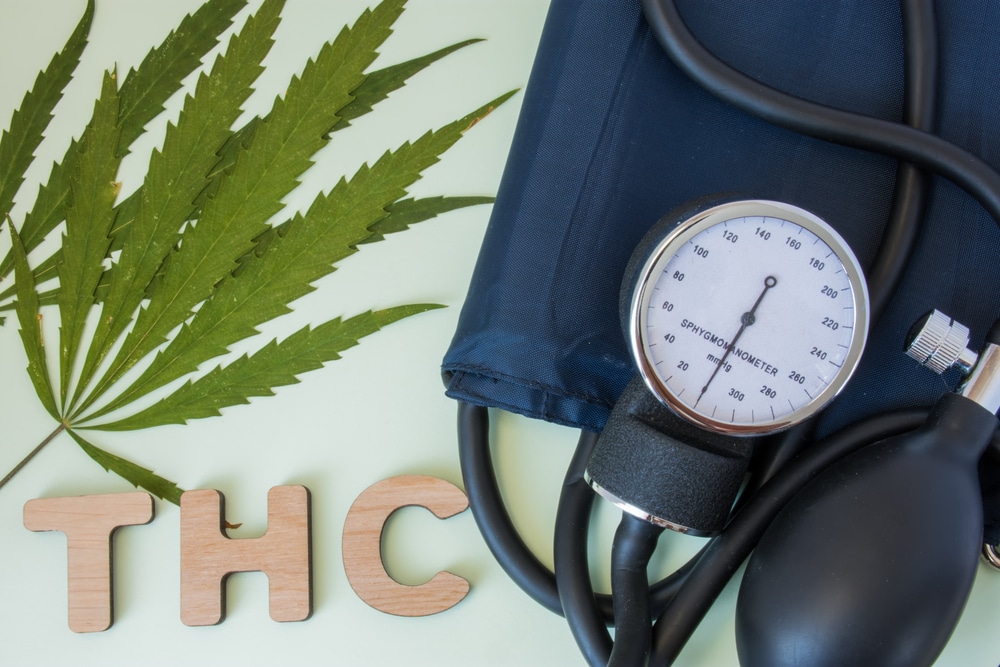Cannabis is one of the most controversial medicinal substances that has been in the talks for centuries. While in some parts of the world, it’s being consumed legally, other parts are struggling to conclude whether it should be legalized or not.
While all of that happens, cannabis still continues to offer several health benefits to a number of people. In this blog, we are discussing one such benefit—cannabis’ ability to lower blood pressure.
But is it really effective for lowering blood pressure? Let’s find out in the blog below.
Understanding Blood Pressure

Before we dive into the impact of cannabis on blood pressure, it’s essential to have an understanding of what blood pressure means.
Blood pressure refers to the force exerted by your blood against your artery walls as it circulates throughout your body. It is typically measured using two numbers:
Systolic pressure (when your heart contracts) and diastolic pressure (when your heart relaxes between beats).
The Potential Influence of Cannabis on Blood Pressure
Several studies suggest cannabis may have an effect on blood pressure levels. Contrary to this, some studies also suggest that cannabis can cause an instantaneous jump in blood pressure.
This is believed to happen due to THC (a component in cannabis), as it can activate certain receptors in the body.
However, it’s important to note that the long-term effects of cannabis consumption on blood pressure are not fully understood.
While some studies suggest that chronic cannabis use may potentially lower blood pressure over time, others have found no changes or even an increase in blood pressure among users.
Potential Mechanisms Behind Cannabis’s Effect
The specific mechanisms through which cannabis might influence blood pressure still require research. One possible explanation for any rise in blood pressure after using cannabis could be its impact on stress hormones like cortisol or adrenaline. Another possibility is that other compounds present in cannabis may counteract or moderate any alterations in blood pressure caused by THC.
The Role of Dosage and Cannabis Varieties
The impact of cannabis on blood pressure can also vary depending on the dosage and the specific strain or variety used. Different strains contain varying levels of cannabinoids and other compounds, which can affect blood pressure differently.
Furthermore, higher doses of THC might have a stronger effect on blood pressure.
Individual Factors and Limitations
Various individual factors and limitations should also be considered when assessing the relationship between cannabis and blood pressure.
It is crucial to understand that various individual factors can also influence how cannabis affects blood pressure. Age, weight, overall health status, and concurrent medications can influence how a person responds to cannabis.
Additionally, we should acknowledge the limitations of research—many studies have small sample sizes or rely on self-reported data, which makes it challenging to draw definitive conclusions.
The Significance of Blood Pressure Monitoring

Monitoring blood pressure can help maintain health and well-being.
While high blood pressure increases the risk of diseases such as heart attacks, strokes, and kidney problems, low blood pressure can cause symptoms such as dizziness, fainting episodes, and fatigue.
It is important to monitor your blood pressure levels regardless of whether or not you use cannabis.
This will help you track any changes over time and take action if needed. If you consume cannabis, it may be especially important to monitor your blood pressure levels, as it may have acute effects on heart rate and blood pressure.
Tips for Maintaining Optimal Blood Pressure
Irrespective of your cannabis usage, the following lifestyle factors can help you maintain healthy blood pressure levels:
- Follow a Well-Balanced Diet: Incorporating a variety of fruits, vegetables, whole grains, lean proteins, and fat dairy products in your diet can help maintain healthy blood pressure levels. It is also advisable to limit your sodium intake.
- Engage in Regular Physical Activity: Regular exercise plays a crucial role in strengthening the heart and promoting circulation. Aim for 150 minutes of moderate-intensity aerobic activity or 75 minutes of vigorous-intensity aerobic activity per week.
- Effectively Manage Stress: Elevated stress levels can largely impact blood pressure. It is recommended to practice mindfulness techniques or pursue hobbies to effectively manage stress.
- Moderate Alcohol Consumption: Consuming excessive amounts of alcohol has been associated with high blood pressure. If you frequently consume alcohol, it may be better to cut it down. For best results, it’s advisable to not have more than one drink per day.
- Quit Smoking: Smoking tobacco products can significantly elevate blood pressure levels and damage arteries. Quitting smoking can help you improve your overall cardiovascular health.
- Maintain a healthy weight: Maintaining a healthy body weight is important for managing blood pressure. Making lifestyle changes such as adopting a diet and engaging in exercise can help you achieve and sustain a healthy weight.
Wrapping up
The relationship between cannabis and blood pressure is intricate. While immediate cannabis use may temporarily elevate heart rate and blood pressure, the long-term effects remain uncertain. Some studies indicate that chronic usage might actually decrease blood pressure over time, while others show no changes or even an increase in blood pressure among users.
Individuals considering cannabis must consult with their healthcare provider before making any decisions. Healthcare professionals can offer advice based on an individual’s health situation and medical history.
Please note that this blog post is suitable for education purposes only and should not replace medical advice or treatment recommendations. It’s always advisable to consult with a healthcare professional regarding your specific health circumstances.



